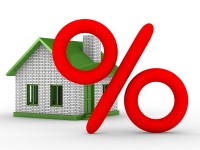Articles
Like US !
Types of Mortgages
Fortunately for buyers, there are a variety of mortgages to choose from. It is in your best interest to investigate each of them to determine which is the best for your situation. You probably won’t qualify for all of them. In fact, you may only qualify for one. But if you do qualify for more than one, you may save yourself money (and worry) in the long run if you do your homework before signing on the dotted line.
Consider a fixed rate mortgage if either of the following describes you:
- You plan on living in your new home for many years, and/or
- You are not a risk-taker and prefer the stability of knowing how much your payment will be each month.Since most home loans are for a period of 30 years, if you want a payment you can count on for that long of a period of time, a fixed rate mortgage may be what works best for you. Once your loan amount and interest rate are calculated and locked in, a fixed rate mortgage will guarantee that you will have the same payment over the life of the loan. Making extra payments to principal will allow you to pay your loan off sooner.This may not always be the best choice, however. If interest rates are very high at the time you take out your loan, with a fixed rate mortgage you’ll be stuck with that high interest for the life of the loan (unless you choose to refinance). Conversely, if interest rates are very low, you’ll come out the winner with interest rates that will stay low no matter how high interest rates go in the future.The following are the advantages and disadvantages of the varying lengths and terms of fixed-rate mortgages:
15-Year Fixed-Rate:
-
- Pay off the loan in half the time of a 30-year loan.
- Equity builds up more quickly than in a 30-year loan.
- Payments are higher (which may be a problem if you lose your job or become unable to work).
20-Year Fixed-Rate:
-
- Pay off the loan in 2/3 the time of a 30-year loan.
- The overall interest paid is considerably less than for a 30-year loan.
30-Year Fixed-Rate:
-
- The most common choice, especially for first-time homebuyers, as it’s the easiest of the fixed-rate loans to qualify for.
- Monthly payments are lower than for 15-year and 20-year loans. This can prove especially helpful if you do not have a lot of “padding” between the amount you can afford to spend and the monthly payment for your desired property.
- More desirable if you plan on staying in the same home for years, since equity builds more slowly than for shorter-term loans.
- For income tax purposes, this term provides the maximum interest deduction.
Adjustable-Rate Mortgages (ARMs)
If you are more comfortable in taking a risk with your money or if interest rates are very high at the time you take out your loan, an adjustable-rate mortgage (ARM) may be the solution for you. You might also choose this type of loan if your planned ownership of the property is short-term or if you expect your income to increase to cover any potential rise in the interest rate.
Generally, the interest rate when you take out your loan will be lower than a fixed-rate mortgage. Please note that this is true initially, not necessarily long-term.
Since an ARM rate rises and falls depending on the prevailing interest rate, your mortgage payment will rise and fall accordingly. If your income is not sufficient to cover the highest possible payments, then this option is not for you. On the positive side, the lower initial payments will allow you to qualify for a larger loan than if you choose a fixed-rate. The downside is that your payments will increase if/when the rates go up.
Typically, ARM interest rates are tied to a specific financial index (such as Certificate of Deposit index, Treasury or T-Bill rate, Cost of Funds-Indexed Arms or COFi, or LIBOR [London Interbank Offered Rate]) and your payment will be based on the index your lender uses plus a margin, generally of two to three points. Get the formula used by your lender in writing and make sure you understand what it means.
Fortunately, the amount an ARM can increase is limited. There are “caps” on how much your lender can increase your rate, both for a period of one year and for the life of the loan. Plan ahead, and have your lender calculate what the maximum payment would be if your rate went to the highest amount allowed by the cap for your particular mortgage. If you are not confident you’ll be able to pay that amount on a monthly basis, perhaps you should reconsider this type of loan.
Convertible ARMs
If neither the fixed-rate or the adjustable-rate mortgage seems like the best option, perhaps the convertible ARM will be right for you. This alternative combines the initial advantage of an ARM with a fixed rate after a predetermined number of years. Obviously, this type of mortgage has more advantages when the initial interest rate is low and the future rate is not guaranteed.
Government Loans
Another mortgage option available to some people is a government loan, providing that you meet the qualifications for these loans.
-
- VA Loans: Veterans may qualify for a loan from the Veterans Administration. There is a limit on the amount you can borrow, so this option works best for those buying a lower priced home.
- FHA Loans: The Federal Housing Association offers loans to lower-income Americans. Look for the phrase “FHA approved” when looking at ads for homes.


 0
0


No Comments Yet...
Add comment